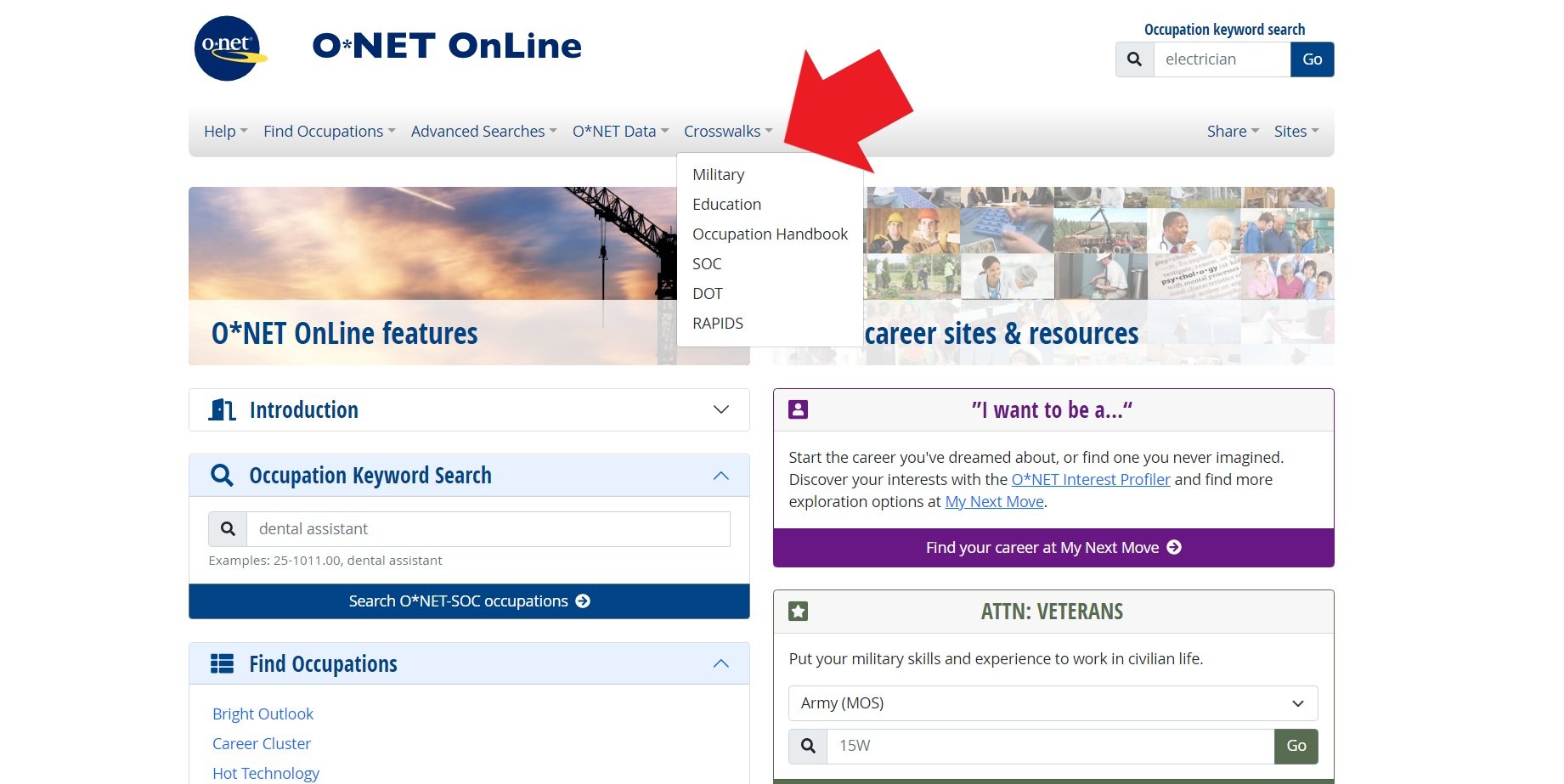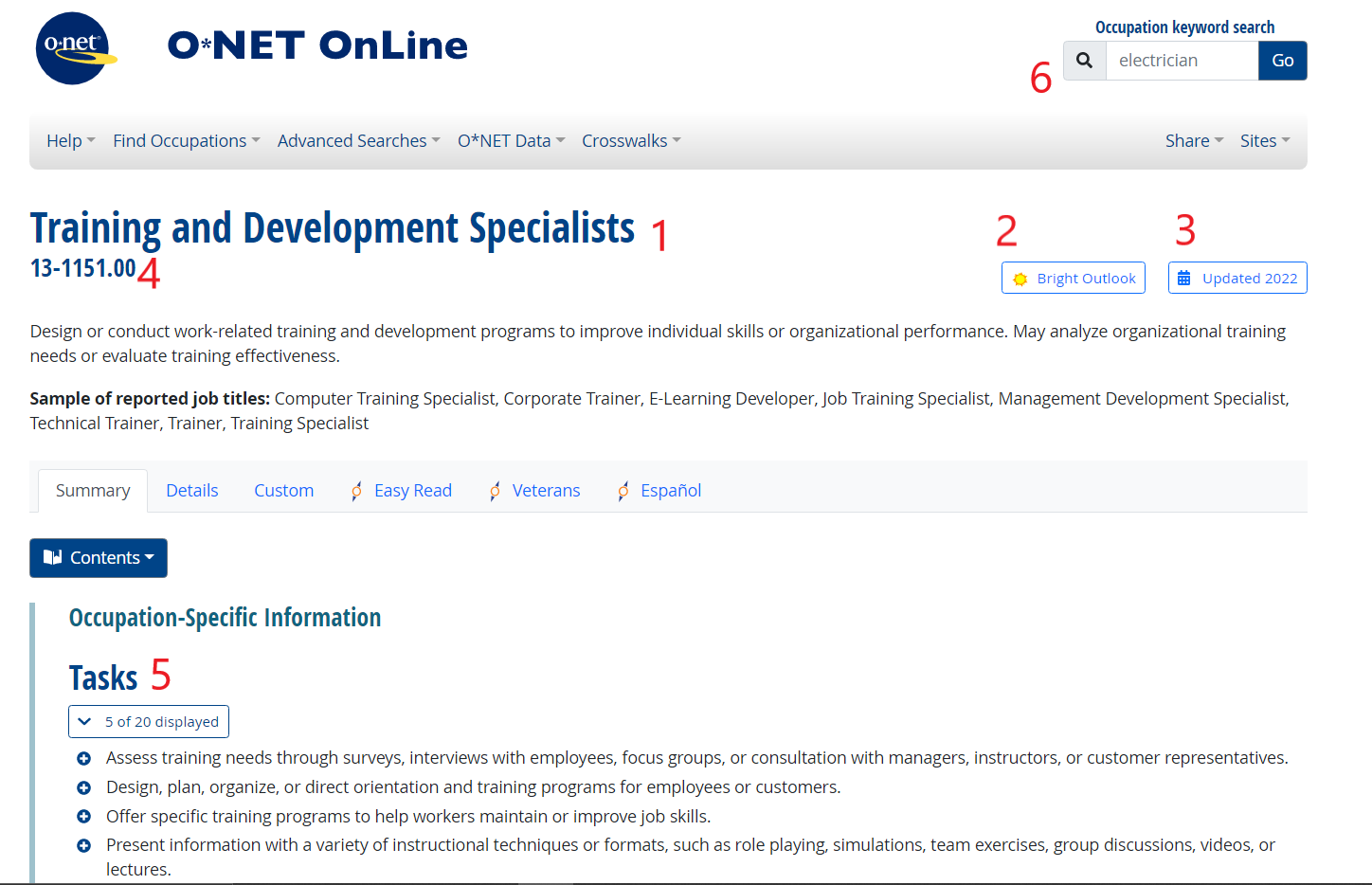Episode 1 Extras
O*NET OnLine Military Crosswalks Walk-Thru
“The O*NET Program is the nation’s primary source of occupational information. Valid data are essential to understanding the rapidly changing nature of work and how it impacts the workforce and U.S. economy. From this information, applications are developed to facilitate the development and maintenance of a skilled workforce.”
“This resource WILL NOT write your resume for you. However, it will help you translate the “work” you performed while you served. Use it as a tool in your professional toolbox.”
When accessing the main O*NET OnLine page, select “Crosswalks,” open the drop-down and select “Military.”
Once in the Military Crosswalks section, select your branch of service and enter your Navy NEC or MOS for other branches. Hit the “go” button.
After hitting "go," a military title will pop up. Select the title that closest resembles the role you performed. For some NECs or MOS' multiple titles can pop up. Select the title that applies to you.
After selecting your military title, a Standard Occupational Classification (SOC) number and title will appear. In some cases, there is more than one SOC. Select the SOC that best suits your search.
You are now in the main section of your SOC summary page. There’s a ton of data here, so let’s point out six key sections at the top of the page:
1. SOC Title
2. Bright Outlook (the career field is moving in a positive direction)
3. Last Time the SOC was updated
4. SOC Code
5. Tasks Section
After going through the entire page, I recommend going through the summary section. There are tabs for more detailed insight on the areas below, custom reports, east read reports, the Veteran "Next Move" program (which I will cover in a future episode), and lastly, everything en Espanol.
Technology Skills section. As you can see here, only 5 of 32 are displayed, but the area is expandable. I recommend including any of these skills if you have experience with them.
Be truthful, though. Don't say you're an expert in Microsoft Excel when you don't know how to open a tab on a spreadsheet. I've seen this happen, and it is a bad look.
Some items in these sections might not translate to a resume but could come in handy during an interview. The work activities section above, detailed work activities, and work context sections below fall in that category.
It's important to remember that some skills are intangible, for example, being a team builder. Be able to speak to these skills about what it takes to build relationships.
The numbers your teams produce are important and will get you noticed, but explaining how you build these teams could put you over the top in an interview.
The Job Zone section explains how much preparation is required to work in this career field, including education requirements, related experience, job training, and similar "Job Zone" examples.
The Department of Labor's Specific Vocational Preparation (SVP) range defines "the amount of lapsed time required by a typical worker to learn the techniques, acquire the information, and develop the facility needed for average performance in a specific job-worker situation."
The skills and knowledge acquired during your career. If you performed this role in the military, this section helps you highlight that.
Don't forget that you can stack these and show causation, e.g., "I gained this knowledge and applied this skill which saved my company $1,000,00.00."
Companies love stuff like that.
Education requirements to perform the role in the civilian world, abilities, interests, and work values associated with either you previously performing the role or required to perform the position.
Now I know formal education is a hot-button topic for some Veterans, and going to college isn't for everyone.
I recommend you understand what education you need to obtain the profession you desire and get it. Don't delay your dreams.
Wage averages and trends are searchable by state and local data sources. Searchable job openings are also available. Lastly, related occupations and sources of additional information are provided.
This information could be beneficial if you are on Active Duty and are looking to settle down somewhere specific after your service.
Not all professions pay the same in all locales.
Don’t walk into any surprises. Stay informed.
I hope this O*NET OnLine Military Crosswalks walk-thru helps you out. If there are any Veterans (or any job seekers) in your life, feel free to share this article with them.





